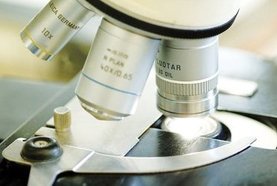Physics
C01 Physics in Grade 10: Mechanics
Florian Schulz | Saturday – Thursday, 8 – 9.30 am
Statics: What does "there is a force acting" mean? Does it exist on its own? What is the overall context of the static structure? What does bodily experience provide? Kinematics: Velocity and acceleration. Where do we derive the assurance of the validity of the abstract formulas? How are they introduced? Dynamics: Motion and force. What is free motion? Does gravity exist? What is weightlessness really?
Mathematics
C12 Mathematics: Trigonometry
Birte Vestergaard | Saturday – Wednesday, 2.45 – 4.15 pm
What is the circumference of the Earth? What is the distance to the Moon? We walk in the footsteps of the ancient Greeks and discover how thinking and creative triangulations can be used to find distances that cannot be measured. Introducing sine as the length of a chord in a circle relative to its diameter. Discovering the laws of sine and cosine.
C13 / S13 Geometric Drawing and Visible Forces: Constructions of Platonic Solids and Tensegrities
Jessica Krause | Saturday – Wednesday, 2.45 – 4.15 pm
Exercises in geometrical drawing of platonic solids. Construction of Tensegrities. Discussion and exchange about construction methods and the sense and benefit of interdisciplinary lessons using the example of mathematics, physics, and art.
C17 Mathematics: The Higher Calculations
Steffen Brasch | Saturday – Wednesday, 4.45 – 6.15 pm
We will start by exploring arithmetic and geometric progression and series, which will give us a lot of possiblities to practice arithmetics and solve equations. This will lead us, on the one hand, to a systematic survey of exponentiation with positive and also negative integers, as well as fractions as exponents. In all this, the question of how to solve equations such as 5x = 10 will arise, and will have to be answered with the help of the logarithm.
F05 Teaching Math as a Journey of Exploration
Birte Vestergaard | Saturday – Tuesday, 7.15 – 8.30 pm
Creating a classroom environment where students feel safe to fail, save to ask questions and safe to share their ideas. How this safety makes it possible to turn the differences of academic levels among students into valuable teaching resources. On this basis: How math be teached as a journey of exploration, using discovery sheets, that make the students discover mathematical laws themselves working in small groups? How to create own discovery sheets.
Computer Science (bilingual)
S06 / C06 Informatic Science: Learning to Code with Robot Karol
Robert Neumann | Saturday - Wednesday, 11.30 am – 1 pm | Thursday, 9.45 – 11 am
First Steps with coding. The coding environment Robot Karol. Please bring your own device.



